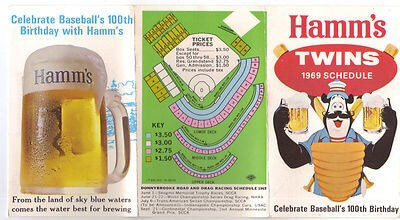MINNESOTA 4, CHICAGO 3 IN MINNESOTA
Date: Sunday, May 4.
Batting stars: George Mitterwald was 3-for-3. Cesar Tovar was 2-for-5 with a triple. Graig Nettles hit a pinch-hit home run, his third.
Pitching stars: Dick Woodson pitched 6.2 innings, giving up three runs on eight hits and three walks and striking out none. Joe Grzenda pitched 1.1 scoreless innings, giving up a walk. Ron Perranoski pitched a perfect inning.
Opposition stars: Luis Aparicio was 2-for-4 with a triple, a double, a walk, and a stolen base, his sixth. Bill Melton was 2-for-4 with a double.
The game: The Twins started the scoring in the second. Mitterwald doubled with one out but was thrown out trying to stretch it to a triple, leaving the Twins with two out and none on. Frank Quilici walked and advanced to third on a pair of wild pitches. Ted Uhlaender walked, and the pair pulled off a double steal of second and home, giving Minnesota a 1-0 lead. It went to 2-0 in the third when Tovar tripled and scored on a Leo Cardenas sacrifice fly.
The White Sox were putting men on base, but could not do anything with them. They had a pair of walks in the first, a leadoff double by Aparicio in the fourth, a walk and a single with one out in the fifth, and one-out singles by Melton and Pete Ward in the sixth, all to no avail. Duane Josephson got a leadoff single in the seventh. The next two batters went out, but this time Carlos May singled to score Josephson and Aparicio tripled to tie the game. Charlie Walters came in to replace Woodson but gave up a double to Melton, putting Chicago ahead 3-2. Grzenda came in to retire the side, but the damage had been done.
The Twins came back in the eighth. With one out, Nettles pinch-hit for Mitterwald, who had gone 3-for-3, and hit a home run to tie the score 3-3. A walk, an error, and an intentional walk loaded the bases and Tovar delivered a single to put the Twins ahead 4-3. Uhlaender was thrown out at the plate, but it did not cost the Twins, as Perranoski came in to retire the White Sox on three ground outs to end the game.
WP: Grzenda (1-1). LP: Bob Locker (1-1). S: Perranoski (5).
Notes: Rod Carew did not start, but came in as a defensive replacement. He went 0-for-1, making his average .395. It's kind of an interesting move--Carew came in to play second, Quilici moved from second to third, and Tovar went from third to left to replace Bob Allison. Billy Martin obviously felt that gave him a better defense. Whether it actually did seems at least somewhat debatable.
In the eighth, not only did Nettles pinch-hit for Mitterwald, but Charlie Manuel pinch-hit for Quilici. After that, Martin's defensive move was to put Nettles in left field, rather than play Manuel or to leave Tovar there, and to move Tovar back to third base, rather than to play Nettles there. Nettles obviously did not have the reputation for defense at third that he would later gain, but it again seems debatable whether that was the best defensive move Martin could have made.
Cardenas was 0-for-4 and was batting .326. Uhlaender was 0-for-2 with two walks and was batting .321. Harmon Killebrew was 1-for-2 with two walks and was batting .316. Oliva was 0-for-4 and was also batting .316. Grzenda's ERA was 2.93. Perranoski's ERA was 0.37.
Tommy John started for the White Sox. He pitched just four innings before being removed for a pinch-hitter with Chicago down 2-0, but with men on first and second with one out. Pinch-hitter Walt Williams popped up to second. John gave up two runs on five hits and three walks and struck out three.
Bill Melton looked like he was going to be really good when he was young. In fact he was really good for a couple of years, but then it fell apart for him. He was twenty-three in 1969 and in his first full season in the big leagues he hit .255/.326/.433. He posted an OPS of over .800 his next two seasons. He made the all-star team for the only time in 1971, but the two seasons were remarkably similar. He hit 33 home runs in each season, and his slash lines are very close. He missed much of 1972, but came back in 1973 to hit twenty homers and post an OPS of .802 at age twenty-seven. That was as good as it would get for him, though. He had a couple more down years for the White Sox, bounced to California in 1976 and to Cleveland in 1977, then was done at age thirty-one. It was a back injury that cost him a lot of the 1972 season, and while no one comes right out and says so, one gets the impression that his back bothered him the rest of his career.
Record: The Twins had won eight in a row and were in first place with a record of 16-7. They led Oakland by 2.5 games.

